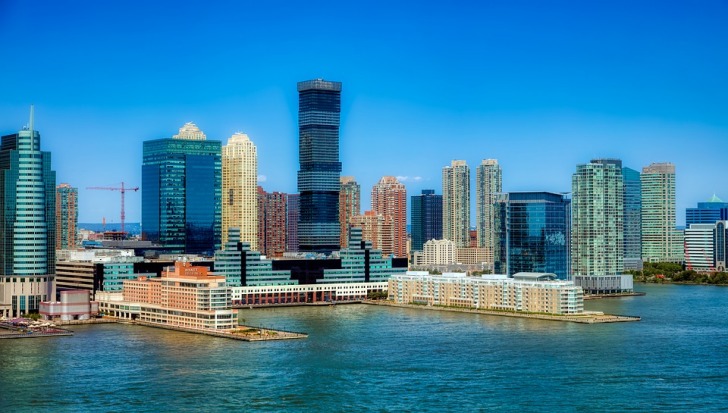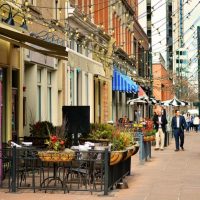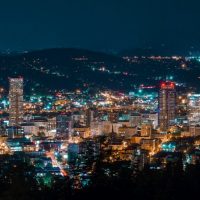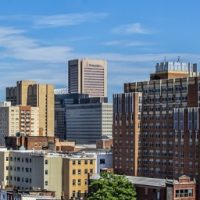New Jersey is one of the oldest states in the U.S.
It is in the Mid-Atlantic and Northeastern areas.
This state is the 4th smallest state when measured really but has the 11th largest population.
Usually, this state is known as Garden State and has even 21 counties.
However, have you ever questioned yourself about the cost of living in this state?
If yes, keep reading this post, and you will find everything about the cost of living in New Jersey, from housing to healthcare costs.
Also, we will take a look at the most expensive cities in New Jersey.
Contents
Cost of Living in New Jersey
The cost of living in New Jersey is about 21% higher than the average for the U.S.
By that means, people in this state need to spend about $130 to buy goods that would cost $100 elsewhere.
Furthermore, New Jersey ranks as the ninth most expensive state in the U.S, just between Connecticut and Rhode Island.
But, when speaking about the actual cost, let’s start with one of the primary parts – housing.
Housing Costs
Costs similar to housing and real estate are often the most expensive in growing communities.
New Jersey is a notoriously pricey state for living in.
So, we can note that this state’s housing costs are high whether you rent or buy.
For instance, homes cost about $390,000.
However, it’s always possible to find homes much higher and much lower than this mid-range value.
In some cities, the price can get even higher – fascinating $803,973( the average home value in Montclair).
Generally, housing costs have risen about 12% over the last year.
On the other hand, rent prices are also very high.
The most affordable rents in the state are in Lindenwold, with rents averaging $950 per month.
Utility Costs
All residents must also pay for several utilities which are necessary for life.
Therefore, these costs are part of any potential budget.
On the positive side, the utility costs in New Jersey are something close to prices in the average U.S. state.
The average monthly water bill in New Jersey is $100.00, or just over $11 cheaper than the U.S. average of $111.00.
For example, residents can expect average water bills of about $50.00 per month and wastewater bills of $50.00, too.
Together it creates a combined monthly water bill of about $100 per household per month.
Food Costs
New Jersey has everything you have on your mind to eat.
This state has it all – from modern healthy restaurants to vegan markets, bazaars, Mexican, Italian, Balcan restaurants.
But you should expect to pay a little bit more from dining out or shopping for groceries.
Accordingly, residents spend almost $330 per month on food.
Grocery costs above-average prices and are about 5.8% more expensive in New Jersey than the national average.
A combo meal in a fast-food restaurant per one person is $15.
With more time, you can enjoy a sit-down experience at a mid-restaurant for about $25 per person.
Transportation Costs
Many of New Jersey’s residents commute by public transportation.
In fact, after New York City, cities in New Jersey have some of the highest dimensions of public transportation users in the country.
According to some studies, the average commute time in New Jersey is only 30 minutes.
When it comes to car insurance, New Jersey ranks in 20th place in the nation with an average annual premium of $1,630.
Healthcare Cost
And in the end – the most relevant part of our life is definitely healthcare.
By almost any measure, New Jersey is a state with the best health care.
But, the prices are not so low-priced.
In Fact, New Jersey residents contribute well above the $1,500 national average for single coverage healthcare.
The Top Five Expensive Cities in This State
Trenton
Trenton is the capital city of New Jersey and the county seat of Mercer County.
In this city, there is so much to see, but the prices here are unbelievably high.
Lunch for one person in an inexpensive restaurant is around $16, while a diner for two in a mid-range restaurant is above $65.
Also, fast food meals can be overpriced.
For instance, McMeal at Mcdonald’s (or Equivalent Combo Meal) is 10$.
As for rent, the price for a one-bedroom apartment is $1.350.
Not to mention the food prices in supermarkets.
One-liter milk is $2.90, while a loaf of fresh white bread (500g) is $2.10.
And last but not least – transportation costs.
A one-way ticket for local transport is $3.20.
On the other hand, for a monthly transport pass, you should expect to pay above $59.
Newark
Despite the fact that the capital is Trenton, the largest city is Newark.
This city is in the northern part of New Jersey, in Essex County, of which it is the county seat.
Here is the actual cost of living in this city.
A meal for one person in an inexpensive restaurant is more than $14, while a meal for two people in a mid-range restaurant is $57.
The other costs for living, such as food and transport prices, are pretty the same as in Trenton.
Furthermore, a monthly transport pass costs a fascinating $80 per month for one person.
The average cost of living in Newark is $2363, which is in the top 5% of the most expensive cities in the world.
So, without a doubt, this city is one of the most expensive in this state.
Jersey City
Sixth Borough (as a nickname for Jersey City) is the second-most populous city in New Jersey.
This city is located in the northeast zone of New Jersey, concretely in Hudson County, of which it is the county seat.
Jersey City has been nicknamed Wall Street West due to its many banks and financial organizations.
Jersey City provides a $448,778 average home value.
Studio apartments in New Jersey have an average price of $1,100 per month or $260 above the national average.
One-bedroom apartments in New Jersey follow suit is around $1,300.
The utility bill per month for primary things such as electricity, heating, cooling, water, and garbage for an 85m2 apartment is around $100.
A one-way ticket for local transport is $3.00, while for a monthly transport pass, you should expect to pay $90.
Paterson
Paterson has the third-highest population in New Jersey.
Known as Silk City, Paterson has a rich history combined with silk production.
Dining in a modern restaurant for two people here costs a fascinating $75.
Even more, healthcare costs here are much expensive than in previous cities.
For a one doctor appointment in this city, you should expect to pay around $125, while for a dentist – $110.
The average cost of living in Paterson is $1893, which is in the top 11% of the most expensive cities in the world.
Elizabeth
Elizabeth is the fourth largest city in New Jersey.
This city is a beautiful place full of many opportunities.
However, the average cost of living in Elizabeth is $1890, which is in the top 10% of the most expensive cities in the world.
Elizabeth’s housing expenses are 56% higher than the national average, and the utility prices are 18% higher than the national average.
Transportation expenses like bus fares and gas prices are 15% higher than the national average.
New Jersey Safety Overview
READ THE FULL REPORT: New Jersey Safety Review
Safety Index:
- OVERALL RISK: LOW
- TRANSPORT & TAXIS RISK: LOW
- PICKPOCKETS RISK: LOW
- NATURAL DISASTERS RISK: LOW
- MUGGING RISK: MEDIUM
- TERRORISM RISK: MEDIUM
- SCAMS RISK: MEDIUM
- WOMEN TRAVELERS RISK: LOW












In my opinion, while New Jersey may be one of the oldest states in the U.S., it is also one of the most expensive to live in, with high costs for housing, utilities, food, transportation, and healthcare.